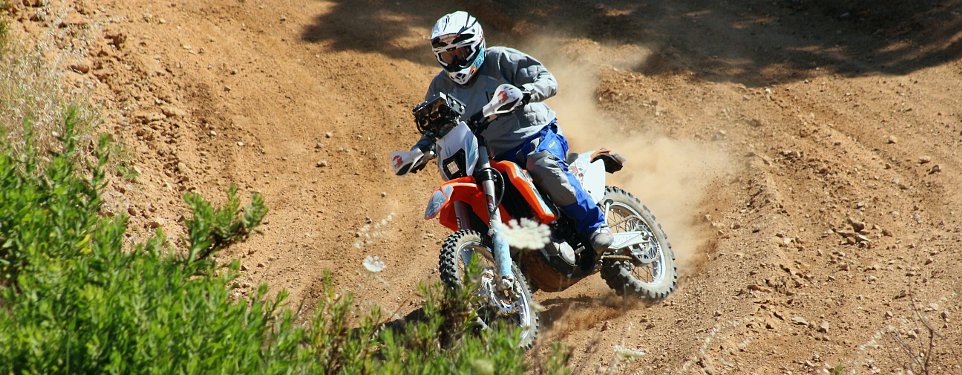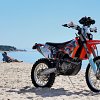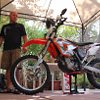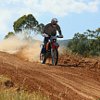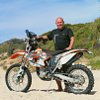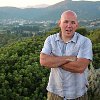Holed up in a beautiful Italian villa near an even more beautiful beach for some R&R before the rally begins, Ned Suesse told me something I never thought I’d hear from a racer.
Editor’s note: While most professional racers started riding before they started elementary school, Ned Suesse never rode a motorcycle until after he graduated from college and was in his 20s. Despite the late start, in 2012 he was the top U.S. rider in the infamously grueling Dakar Rally. This week, Suesse is competing in the Rally Italia Sardegna. Kyra Sacdalan talked to him as he prepped for the event.
“I think I’m a little scared,” he said.
I haven’t been around that many racers, but I couldn’t imagine one admitting weakness. Granted, he wore a big grin when he said it, but it still surprised me. The statement was based on his lack of experience on a motocross track, where the qualifying session would take place, but it also reflects Suesse’s nature.
Suesse laughs loud, tells long stories and takes shit from his friends and fellow racers like a champ – just what you’d expect from a down-to-earth, non-factory, grassroots racer who does this not because he loves motorcycling, but because he breathes it. Because it’s life. Suesse is a victim of his passion, never to escape.
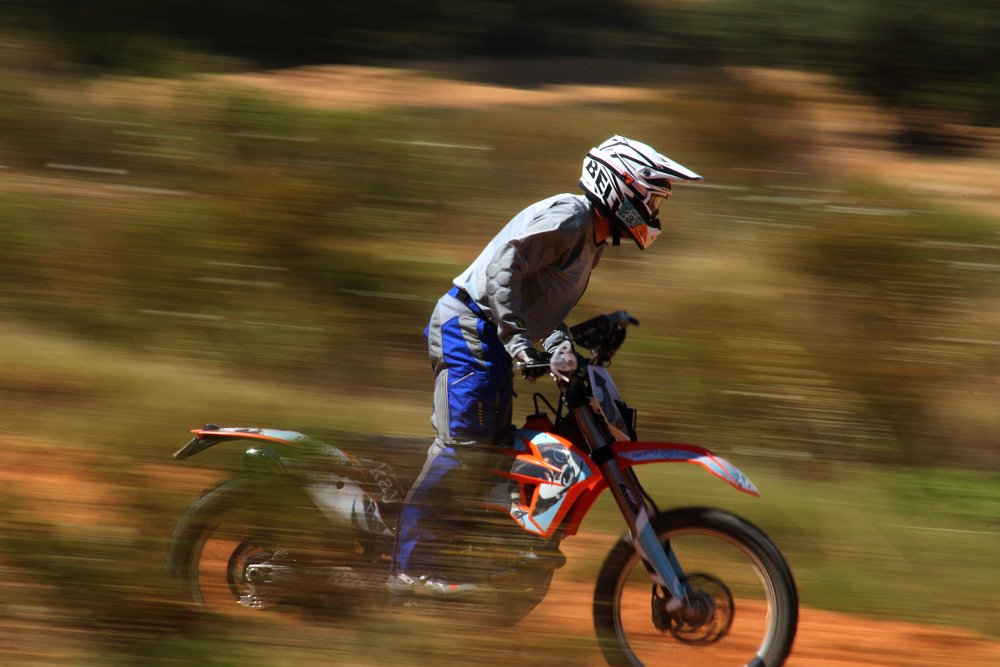
RevZilla: Motorcycling started for you after college and you’ve done most of your own fundraising by finding sponsors such as If You See Kay Wine. How did you make it from “the desk to Dakar,” so to speak?
Suesse: Motorcycling started for me as something that I absolutely enjoyed, in the purest sense of the word. I found — and still find — the act of controlling a bike intoxicating! Although with such a late start, I did not believe I'd ever be much good at it. I was a lousy athlete as a kid — always the last to be picked for any team in school, and I believed about myself that I was smart but not very capable athletically. Over time, as I developed my skills doing what I enjoyed so much, I had good experiences racing locally. Then in Baja and in Morocco, I began to question my own limiting beliefs about my ability. Dakar became something that I could picture myself doing, and once that possibility crept into my mind, I found myself compelled to find out whether I could do what had previously seemed out of reach.

RevZilla: When you took on the Dakar Rally in 2012 for the first time, you said in an interview that your goal was simply to finish. Not only did you finish, but you were the last American man standing. To what do you credit your achievement?
Suesse: I see two questions here: One is how to finish a rally, and the other is what constitutes success. For me, the two were closely linked, but I'm sure Marc Coma would not agree.
I think the main ingredient in finishing is putting in the time on my bike before the race. No amount of fitness can overcome bad riding technique, and no amount of mechanical perfection at the beginning of the day can overcome crash damage created during it. The key to finishing is having a solid pace that you can trust even when everything else is wrong, and it takes thousands of hours to develop that.
Whenever a prospective rally rider calls and requests advice, I ask how many bikes they have worn out. In my opinion, that is the single most important deciding factor in finishing a rally — more important than speed or fitness or financing.
As for what constitutes success, that is a very personal topic. For me, coming from a place of mental defeat, where I did not believe I could be part of such an endeavor, success was the realization that I deserved to be there. That I had earned the right to think of myself as legitimate in that way. This moment happened on about Day 12, but if I hadn't made the finish line, I would probably have needed to return to finish the race overall.

RevZilla: A few key contenders experienced difficulties or accidents that took them out of the running at Dakar that year. Did luck have a hand in the outcome?
Suesse: As a racer, you can make a tremendous amount of luck for yourself through preparation, training, and attitude, but there is always the five-cent O-ring that can fail and take your whole race through no fault of your own. I rode very conservatively. I had a simple bike which I knew inside and out. I carried a lot of spare parts. And, I got lucky time and again when something that could have gone wrong, didn't.
To me, the result of Dakar was mostly about believing in myself and in my process. The opponents I was most worried about were the ones in my head, and I succeeded at dealing with them.
RevZilla: What does it take to win a rally? Not even that. What does it take to have a successful career in rallying?
Suesse: To me, career implies making a living, and there are only a very few people who achieve that. What sets them apart from the rest of us, to some degree, are skill and determination. But I think more than in any other sport, it is the ability to focus themselves mentally. The mental demands of riding fast while navigating increase exponentially with speed, and the people who do that the best are truly extraordinary in their ability to focus under pressure.
RevZilla: What are some key rallies you see in your future?
Suesse: The only one I can see right now is Sardegna. I've wanted to do this rally for many years, and I decided this was the right time for it. Once again, I was lucky that the world found a way to make my goals possible.
RevZilla: Why is Sardegna significant?

RevZilla: Who are you looking to beat?
Suesse: This is probably getting repetitive, but my focus is internal. I want to have at least one stage where I feel like I ride and navigate to the best of my abilities, where I leave it all on the table. I'm curious about where that will place me in the overall standings, but not because there is any one person I want to beat or position I want to achieve. With that said, I think all of us look up to people who have achieved the most in our chosen sports, and getting the chance to compete with my heroes is something I look forward to.

RevZilla: You have a small, hand-picked team here with you. Why do you say the team is so important?
Suesse: Attempting a race like this is not convenient. It takes hours of sweating out the details, costs a whole bunch of money, and requires training and preparation. Feeling the support of a team coming together to make our common dream happen is not only a joy but a relief.
First and foremost, the team at If You See Kay has been key at every step of the process. The vision was for me and Scott Bright (fellow racer and co-conspirator), two guys with day jobs, who should know better, to compete at the world level. Kay's motto is "wide open throttle or don't bother," so they were really excited to be involved with our story.
Once things got underway, Scott and I were on the phone numerous times per day for months hashing out details to make it happen. Quickly, we realized that the language barrier might be a problem, so I asked my friend Manuel Lucchese if he would join us. His experience of the event has helped immensely. Then we have Cindy Bright, who’s just a force of nature and our enabler, and Dave Peckham, mechanic and confidant.
RevZilla: What do you look for in a team member?
Suesse: The most important thing to me is to be around people who are positive and focused on the big picture. When working on a project like this, so many people see only the reasons not to go or think just about what is in it for them. Either of those situations is a drain on the overall outcome.
RevZilla: Any big plans after Sardegna?
Suesse: My company, Doubletake Mirror, has a new mirror focused on adventure bikes coming out. I've been working on it for ages, and it is finally ready to go. I'm really excited to introduce this product to the world. The minute I get home, we'll launch.

RevZilla: Lastly — this one's important! — if we were to visit your home town in Colorado, where would you take us for tacos?
Suesse: We'd go to a carniceria in the hood out east. I don't know the address. It's not easy to find, but their tacos are legit!




